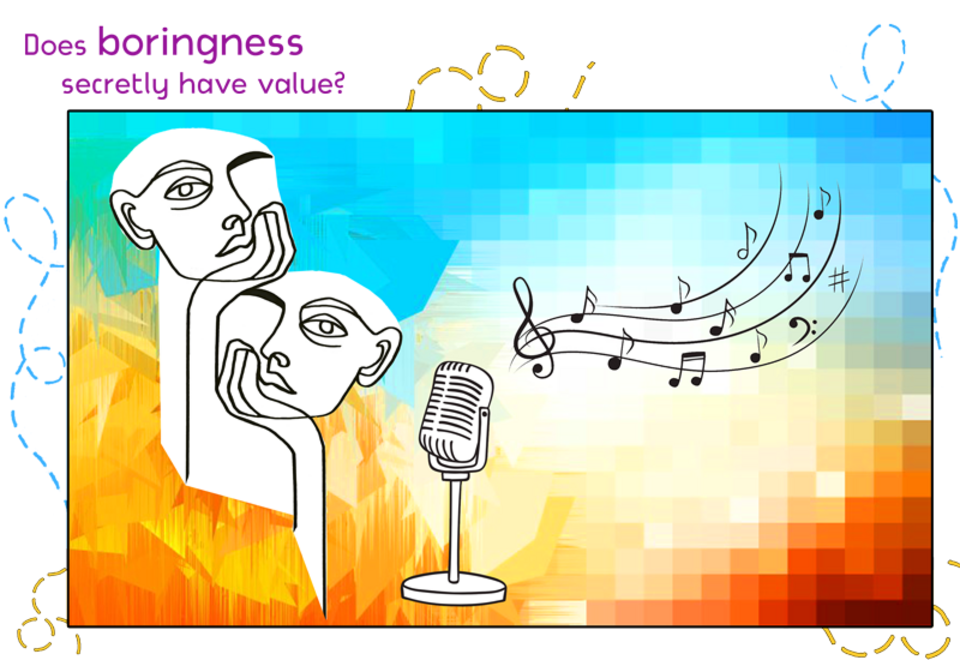
The ode to boringness
| Objective: To exchange your creative thoughts on boringness with other Philoquesters through a text vibrant with emotion! |
Duration: 15 to 45 minutes
Material:
Sheets of paper and pencils
Coloured pencils and markers
A device for playing music
- Optional: a device to record yourself
Instructions:
We tend not to like boring things. They’re blah, they’re not exciting, we'd rather do something else. But maybe boringness has a hidden beauty... a secret value? In this activity, you will praise boringness by writing an ode to its glory, or a poem to be read with music!
...
Brainstorm. Before composing your ode, think about boringness: How might it be important to you? Why is it important to the world? What positive role does it play in our lives? You can use ideas from the Idea Stretching or the Philosophical Picnic activities to help you. Then find music to accompany the reading of your ode. It could be a classical symphony that will give a solemn air to your ode, or a hip-hop beat to which you can rap your ode!
Write your ode. On a piece of paper, write a text to celebrate boringness. Don't hesitate to make your sentences rhyme if you can, to repeat certain words for emphasis, or to use metaphors to make your text more poetic.
Read your ode. Play the music you've chosen in the background and deliver your text with all the emotion you can express. Try emphasizing important words and speeding up or slowing down certain parts to create different effects. If you want, you can even record yourself on a phone or a computer!
- Share your ode. Take a photo of the text of your ode, and send it with your first name and age to ipcj@philo.umontreal.ca so we can share your position with others! If you want, you can also send us a recording of your reading of the ode.
...
Bonus: If you want to think from the opposite viewpoint, you can write an ode to interestingness! You can then imagine that both odes are read at the same time, like in the lyrical contests the ancient Greeks used to hold... or like a rap battle! What might the audience be wondering about by the end of this event: Is interestingness necessarily preferable to boringness? Why or why not? Could either of these two concepts be eliminated? What would happen if it were? |

| Tricks for tots: If you prefer, instead, you can draw a situation in which boringness is a good thing. Your drawing has to show how boringness plays a positive role in the situation you have chosen. You can even select music to accompany your drawing! |
| Tips for teens: In the literary tradition, an ode is meant to be a vibrant expression of one's feelings about something or someone. It is thus strongly influenced by the person who writes it. So to give your ode to boringness more substance, you can invent a character who has had significant experiences of boredom, and incorporate those experiences—and the feelings they provoked—into your ode. Finally, think about these follow-up questions: Is it possible to not be influenced by your own experiences? Why or why not? Are our thoughts and feelings two separate things? Maybe it's just not possible to be objective... but if it were, would it be desirable? |
Share your creative reflections by sending them via email.
Include photos of your projects and notes of your thoughts, as well as your first name and your age!


